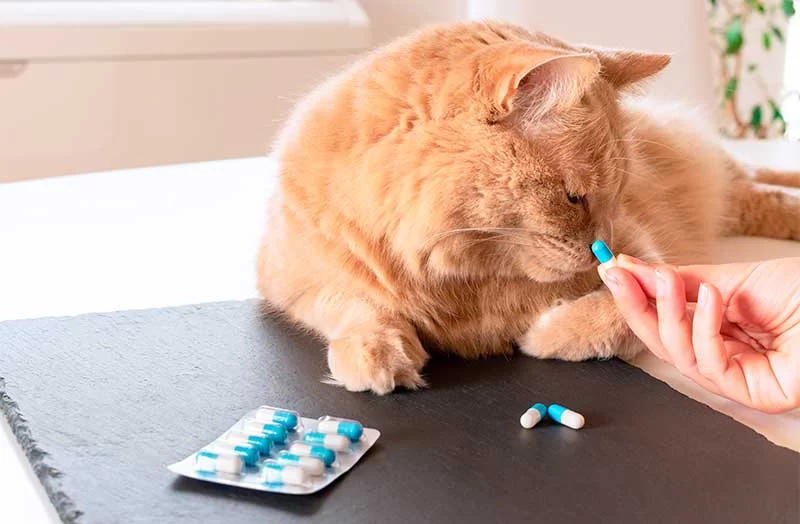Best Ways to Manage a Pet’s Medication: Effective Tips for Pet Owners
- Understanding Pet Medication
- Challenges in Managing Pet Medicine
- Practical Tips for Giving Pets Medication
- Common Types of Pet Medications
- When to Seek Help with Pet Medication
1. Understanding Pet Medication
Managing your pet’s medication is a crucial part of ensuring their health and well-being. Whether your pet is dealing with a chronic condition, recovering from surgery, or managing an acute illness, medication can help them feel better and recover faster. However, administering pet medicine can be challenging for pet owners, and it’s important to understand how to do it safely and effectively.
Pets may require different types of medication depending on their condition. These can include oral medications, topical treatments, injections, or even special diets. It’s essential to follow your veterinarian’s instructions precisely to ensure your pet receives the right dosage at the correct times.
2. Challenges in Managing Pet Medicine
Many pet owners face challenges when it comes to managing their pet’s medication. Some of the most common difficulties include:
- Resisting Medications: Some pets may resist taking their medication, especially if it's in pill form or has an unpleasant taste. Cats, for example, are notorious for being difficult when it comes to taking pills.
- Forgetting to Administer: Pet owners may forget to give their pets their medicine, especially if the treatment is long-term or involves multiple doses per day. Missing doses can reduce the effectiveness of the medication.
- Side Effects: Some medications come with side effects that can be concerning, such as digestive issues or lethargy. Monitoring your pet’s reaction to their medication is vital.
- Complicated Schedules: Some medications need to be given at specific times or with food, which can create a complicated schedule for pet owners who are busy or have other commitments.
Despite these challenges, there are ways to effectively manage your pet’s medication with a bit of patience and the right strategies.
3. Practical Tips for Giving Pets Medication
Here are some practical tips that can help you manage your pet’s medication more effectively:
- Hide Pills in Food: One of the easiest ways to get your pet to take a pill is to hide it in a small amount of food or treat. Peanut butter, cheese, or pill pockets can work wonders for pets who are picky eaters.
- Use a Pill Popper: If your pet is resistant to pills, a pill popper can make administering the medication easier. This tool helps you place the pill directly into the back of your pet’s throat without causing them distress.
- Liquid Medications: If your pet refuses pills, liquid medications may be an easier alternative. You can use a syringe to squirt the liquid directly into their mouth. Just be sure to follow the dosage instructions carefully.
- Topical Medications: For skin conditions, topical medications can be an effective treatment. When applying topical ointments or creams, make sure to gently massage the area and avoid excessive licking to ensure your pet receives the full benefit of the medication.
- Set Reminders: If you struggle with remembering to give your pet their medication, set a reminder on your phone or use a medication management app. You can also keep a written log to track when each dose was administered.
Using these strategies can help make medication time less stressful for both you and your pet, ensuring they receive the treatment they need on time.
4. Common Types of Pet Medications
Pets are often prescribed various types of medication depending on their specific needs. Here are some of the most common types of medications for pets:
- Antibiotics: These are commonly prescribed to treat bacterial infections. They can be administered orally or topically, depending on the severity of the infection.
- Anti-Inflammatories: These medications help manage pain and inflammation caused by conditions like arthritis or injuries. They may be given as pills, liquids, or injections.
- Parasite Preventatives: Medications that prevent or treat flea, tick, and worm infestations are essential for keeping your pet comfortable and healthy.
- Allergy Medications: Pets that suffer from allergies may be prescribed antihistamines or other medications to manage symptoms like itching, sneezing, or watery eyes.
- Chronic Condition Medications: Pets with long-term conditions such as diabetes, heart disease, or epilepsy often require daily medications to manage their symptoms and improve their quality of life.
Understanding the type of medication your pet needs will help you administer it correctly and avoid any potential issues.
5. When to Seek Help with Pet Medication
While managing your pet’s medication at home can be manageable, there are times when it’s essential to seek professional help:
- Difficulty Administering Medication: If you’re consistently struggling to give your pet their medication, it may be helpful to consult your veterinarian. They may suggest alternatives, such as flavored pills or injectable options.
- Adverse Reactions: If your pet shows signs of an adverse reaction to their medication, such as vomiting, diarrhea, or lethargy, contact your veterinarian immediately for guidance.
- Medication Monitoring: Some medications require regular monitoring to ensure they’re working effectively and not causing harmful side effects. Your veterinarian can help guide you through this process.
For expert advice on managing your pet’s medication, visit Hidden Brook Veterinary, where experienced veterinarians can assist you in ensuring your pet receives the best care possible.










